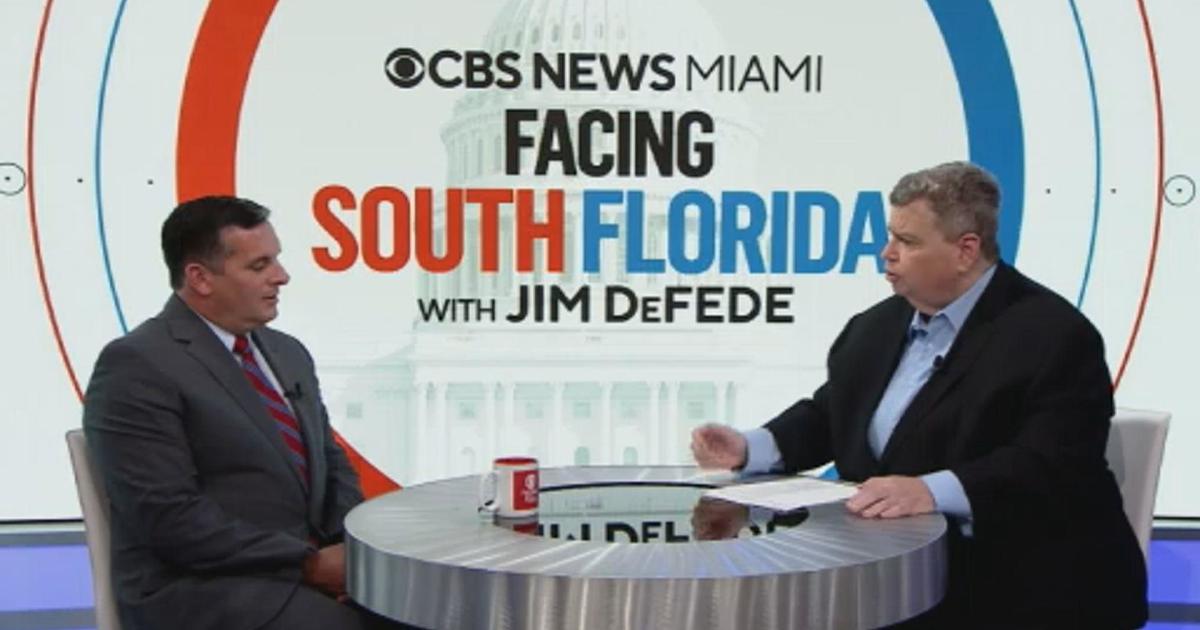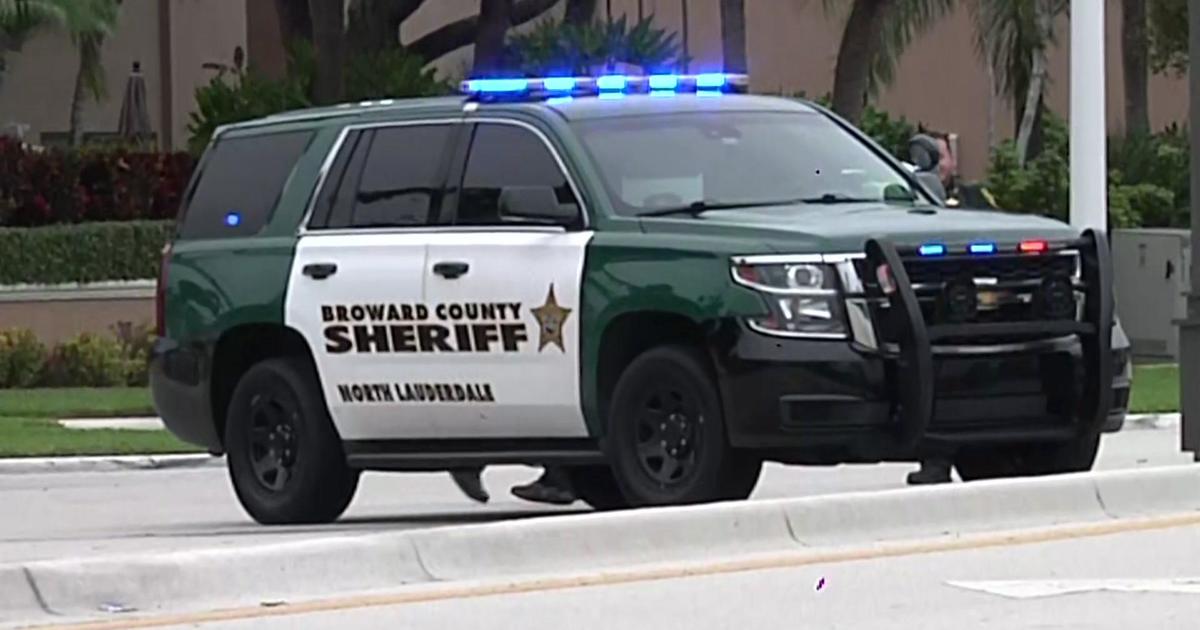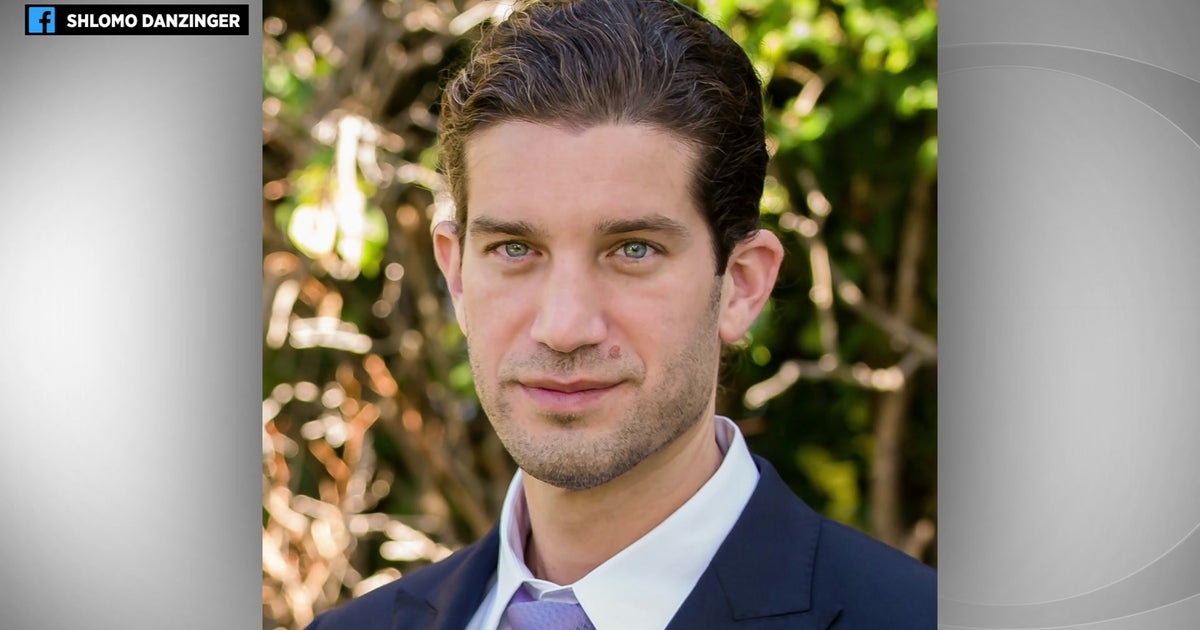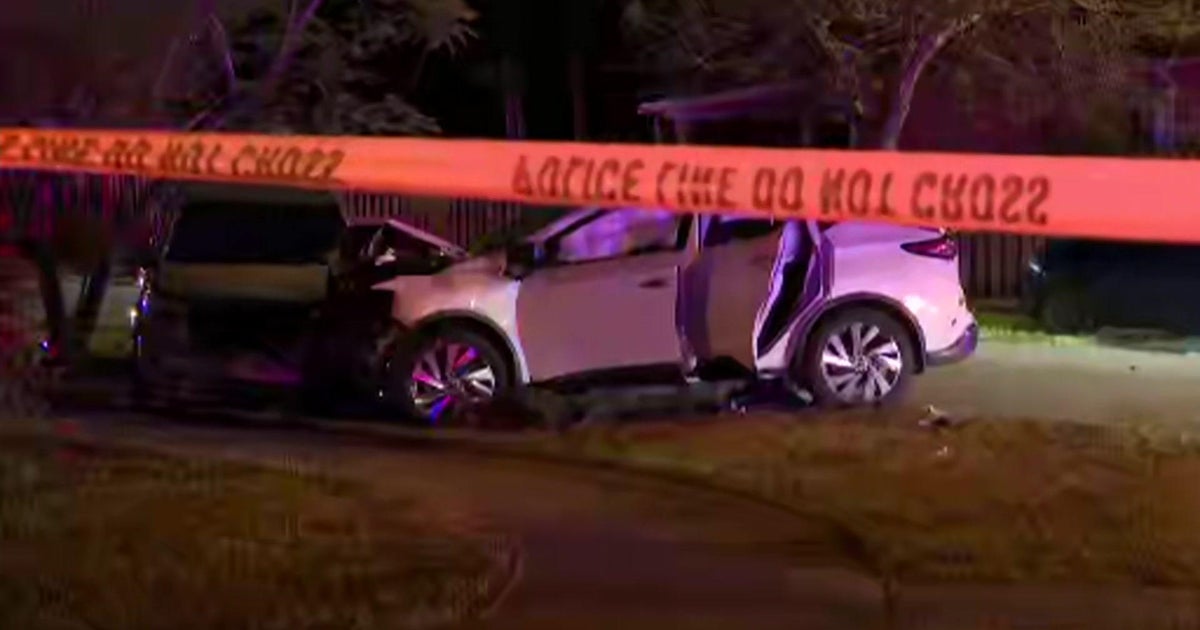Breaking Down The Bits Of Bitcoin
MIAMI (CBSMiami) - Imagine waking up tomorrow and your bank account has twenty-percent more money in it--or perhaps 20-percent of your hard-earned cash is missing? You probably would lose sleep right? Well it is happening right now with a new currency called Bitcoin.
Some South Florida business are now accepting it including the Clevelander. The South Beach hotspot will happily take your cash, credit card, and as of this month Bitcoins.
Jeff Turgeau with the Clevelander explained, "The way we saw it as a better guest experience for our international guests. The impact has been very high. Throughout the course of three days we have generated an additional $100,000 in food and beverage and hotel room revenue."
If you have never heard of Bitcoin, your not alone.
It's fairly new and a bit complex. Bitcoin is digital money. Think of it like cash and an app, put together.
You can send Bitcoins to anyone through that app, a webpage, even print a Bitcoin code out and you can deposit it...with an app.
Florida International University economics professor explained it's growing in popularity. "Right now we probably have 10,000 venders all over the world who accept Bitcoin and we have 100,000 users." And who says it's worth something? "That community says it's worth something." Bustamante replied.
Bustamante showed us just what that community thinks it's worth. $800 dollars. No $950 dollars. No $624 dollars. As we watched a computer screen the price went up and down. "Within 10 seconds you just lost a dollar if you had one Bitcoin," he said.
As it turns out, Bitcoin is more volatile than the stock market. Any given day Bustamante says the value can go up or down 20%. Remember this is digital money backed by, well, no one. "Bitcoin exists because we believe it exists," said CBS4's David Sutta. "Absolutely. It's just like Santa," Bustamante said.
Santa for 20 and 30 something's perhaps--that's the average age of a Bitcoin user.
Moe Levine, a Bitcoin entrepreneur, believes this is a revolution.
"I truly believe that in ten years teachers will show their students paper money as a history example of people used to spend money using paper," he said. Levine is certainly a Bitcoin believer, using it for just about anything he does. He showed us the advantages of the system.
-First there are no banks involved. So no big bank fees for you or a business selling you goods and services.
-Second you can send money anywhere to anyone. No government can stop the transaction.
- And lastly there is no fraud. None of your personal information is attached. In fact it's completely anonymous.
And millions of dollars are being moved in the system often with an app on their phone. The app, referred to as a digital wallet, is manufactured by a number of companies.
Nicolas Cary is the CEO of one of the more popular wallets called Blockchain.
"Think about how obsolete a lot of things have been in the past. We switched from having photos to go digital and then books went to digital. DVD's went from VHS and things like that to digital. And now there is no reason to think that money wouldn't do the same thing." Cary said.
Buying Bitcoins is as simple a 30 second signup online. You can also sell Bitcoins for good ol' American dollars just as fast. If it sounds good to you, imagine what it sounds like to criminals? No banks. Complete anonymity. No regulation for anything. "It seems like it's the next version of the Swiss Bank account," Bustamante said with a smile. "It really is."
Money laundering. Offshore banking. Selling drugs or teddy bears.
"That's the beauty of it. We don't know who's using it. We have no indication," Bustamante said. The US Department of Justice has an indication. When they recently took down a secret site called Silk Road that sold just about any illegal drug or item you can imagine the site accepted millions of dollars in just one currency. Bitcoin. The federal agency that oversees financial crimes testified before Congress in November on the issue. The head of the Financial Crimes Enforcement Network, Jennifer Shasky Calvery, said "We know that it has been exploited by some pretty serious criminal organizations." Congress is now beginning to look at how to regulate digital currency including Bitcoin.
And here in South Florida, where fraud and scams are often invented, the first arrests ever over Bitcoins took place this month.
Undercover agents say they approached Michel Espinoza and Pascal Reid to convert large amounts of cash into Bitcoins. They said they took the bait for a fee, despite being told the cash came from stolen credit card numbers. It's classic money laundering--with a high-tech spin.
Miami-Dade State Attorney Katherine Fernandez-Rundle told CBS4, "I had not ever seen anything like this." Fernandez Rundle is the first State Attorney in the country to go after illegal Bitcoin users.
"I would imagine this is something that is happening all over the country. I think we are going to be much more watchful of it. Much more mindful of it," she said.
"It's just a matter of time before regulation comes into place," Bustamante contends. With the potential for funding terrorism the completely anonymous feature of the currency may disappear.
FIU Economics professors have begun to discuss Bitcoins in their classes. The digital currency is chock-full of lessons--including the possibility of it soon being regulated.
"If there is any kind of small doubt on the future of Bitcoin, what does it do to it's value in the future?" he asked his class. A student responds "Decrease it" and the professor agrees. "It's going to decrease."
In Bustamante's economics class not a single student owned Bitcoin--but they have thought about it.
Zach Leatherman didn't hesitate when asked if he would buy it. "If I had the money definitely," he said. Other students were not as sure given the volatility of the currency. You could equate Bitcoin to the beginning of the internet. It could be AOL--a big flop.
Or the next Google. Levine, the Bitcoin entrepreneur, contends "It's Paypal. Five years ago nobody could understand, or fathom you have your bank account online. That's it. Bitcoin is Paypal, but without the fees." Are these smart people or fools that are doing this? "I think they think they are very smart. And so far they have proven to be geniuses in terms of the increase in value of their investment," said Bustamante. In the end it may be all about timing.
Bustamante says he bought $100 dollars' worth of Bitcoin in 2010. Over a year it grew just 2 percent and he got out. If he had held out one more year, he would have had more than $600,000. Oops. That said - he's not getting back in. In fact he tells his mom to stay away because while you could win big, this bubble is likely going to burst.



